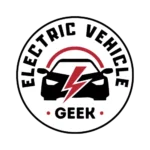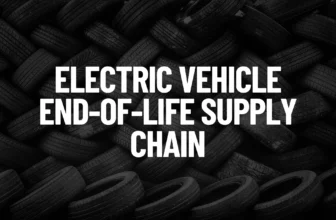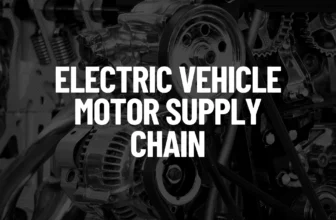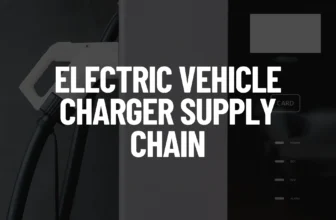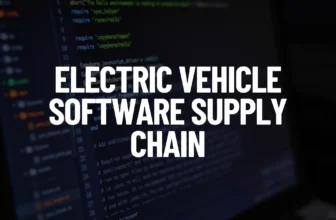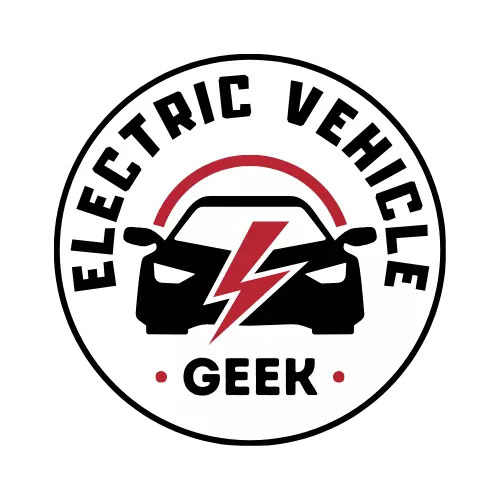The electric vehicle (EV) supply chain logistics is a vital aspect of the automotive industry, ensuring the timely and efficient transportation of raw materials, components, and finished vehicles.
Unlike traditional automotive supply chains, the EV supply chain requires a specialized logistical approach to accommodate the unique demands of electric vehicles’ key components handling, transportation, and delivery.
Table of Contents
Electric Vehicle Supply Chain Raw Material Transportation
The transportation of raw materials for electric vehicle (EV) production is a complex and global process that occurs in the electric vehicle raw material supply chain.
Essential materials like lithium, cobalt, and nickel are sourced from mining locations around the world and transported to processing plants before reaching battery manufacturers. This involves multi-modal logistics, navigating long distances, geopolitical factors, and regulatory requirements. Additionally, environmental concerns over mining and transportation emissions require sustainable practices. Efficiently managing this stage of the supply chain is crucial to meeting the growing demand for EVs while ensuring both cost-effectiveness and sustainability.
Electric Vehicle Battery Logistics
Batteries are the heart of electric vehicles, and the logistics surrounding battery transportation are highly complex processes that occur in the electric vehicle battery supply chain.
Due to the chemical composition of EV batteries, their transportation requires strict safety protocols to prevent accidents during transit. Furthermore, batteries are often produced in one location but assembled into packs at a different site, creating additional transportation steps.
The logistics of battery transport typically involve moving batteries by sea or rail for long distances, then by road to assembly plants for final integration into vehicles. This multi-modal transportation strategy must be carefully coordinated to ensure that batteries arrive on time and in optimal condition.
Charging Infrastructure Logistics
An often overlooked but equally important aspect of the EV supply chain is the logistics of charging infrastructure that occurs in the electric vehicle charger supply chain.
As the adoption of electric vehicles grows, the need for a robust network of charging stations becomes more critical. This includes the transportation and installation of charging stations at strategic locations, such as cities, highways, and parking lots.
The logistics surrounding charging infrastructure must take into account factors such as site accessibility, installation timelines, and coordination with local governments and businesses to ensure that charging stations are available where and when needed.
Electric Vehicle Assembly Component Transportation
The next crucial phase in the EV supply chain involves the transportation of individual components in the electric vehicle assembly supply chain.
EVs require an array of specialized parts, including battery cells, electric motors, inverters, and other electrical components. These parts are often produced by various suppliers, which means logistics must coordinate the delivery of diverse materials from multiple locations to the assembly plants. The transportation of these components is time-sensitive and needs to be carefully managed to ensure a seamless manufacturing process, reducing the risk of production delays that can disrupt the entire supply chain.
Finished Electric Vehicle Transportation
Once electric vehicles are assembled, the next step in the logistics chain is moving them from manufacturing plants to customers and dealerships.
This stage requires the coordination of transportation channels to efficiently deliver finished vehicles to various distribution points, which can be spread across large geographic areas. Depending on the destination, EVs may be transported by rail, truck, or ship.
Given the increasing demand for electric vehicles, manufacturers must optimize this phase of logistics to avoid bottlenecks and ensure a smooth flow of vehicles into the market.
Reverse Logistics
The EV supply chain does not end with the sale and use of the vehicle. Reverse logistics plays a significant role in the recycling and disposal of batteries in the electric vehicle recycling supply chain.
As EVs reach the end of their lifecycle, batteries must be safely collected, transported, and processed to recover valuable materials like lithium, cobalt, and nickel. Efficient reverse logistics is essential not only for environmental sustainability but also for maintaining a circular supply chain that minimizes waste and reduces reliance on newly mined raw materials.
Challenges and the Future of EV Supply Chain Logistics
In the modern supply chain, the flow of information is as crucial as the physical movement of goods. The EV supply chain is highly dependent on accurate and timely information to manage the various stages of production, transportation, and distribution. Information must be shared across multiple levels of the supply chain—from raw material suppliers to manufacturers to distributors—to ensure that all components are available when needed. Advanced technologies, such as real-time tracking and data analytics, are becoming integral to improving efficiency and minimizing disruptions in the supply chain.
The electric vehicle supply chain presents a unique set of challenges that differ from those in traditional automotive manufacturing. The specialized nature of EV components, such as batteries, means that logistics networks must be adaptable to new technologies and changing consumer demands. Moreover, the EV supply chain is heavily influenced by external factors such as government policies, global market dynamics, and technological advancements.
As the demand for electric vehicles continues to rise, the supply chain must evolve to meet these new challenges. Logistics providers will need to invest in more sustainable practices, better manage the flow of materials, and adopt innovative technologies to streamline operations. This evolution will require collaboration across industries, as well as the development of new logistics solutions that prioritize efficiency, sustainability, and scalability.
Conclusion
Logistics is an essential component of the electric vehicle supply chain, from the transportation of raw materials to the final delivery of finished vehicles. As the EV market grows and becomes more complex, so too must the logistics that support it. By focusing on optimizing the entire flow of materials, information, and goods, companies can meet the demands of the EV industry while ensuring sustainability and efficiency at every stage. The future of EV supply chain logistics will be defined by continuous innovation, collaboration, and a commitment to meeting the evolving needs of the market.
As a professional in electric vehicle (EV) supply chain logistics, your insights and expertise are invaluable in enhancing the quality and depth of this blog.
I invite you to collaborate by sharing your knowledge, real-world experiences, and case studies to deepen our understanding of the complexities within the EV logistics network.
Together, we can explore actionable insights, innovative solutions, and best practices that improve efficiency and sustainability across the EV supply chain, particularly in the transportation of raw materials, components, and finished vehicles.
If my content has contributed to your work within the EV logistics sector, I would greatly appreciate a letter of recommendation. Your support will help me refine my contributions and continue advancing the optimization of EV supply chain logistics.
Let’s work together to shape the future of the EV supply chain and expand our collective expertise to drive the industry forward.
Please feel free to reach out to me directly at james@electricvehiclegeek.com.
Thank you for your engagement and for being an essential part of this journey!
